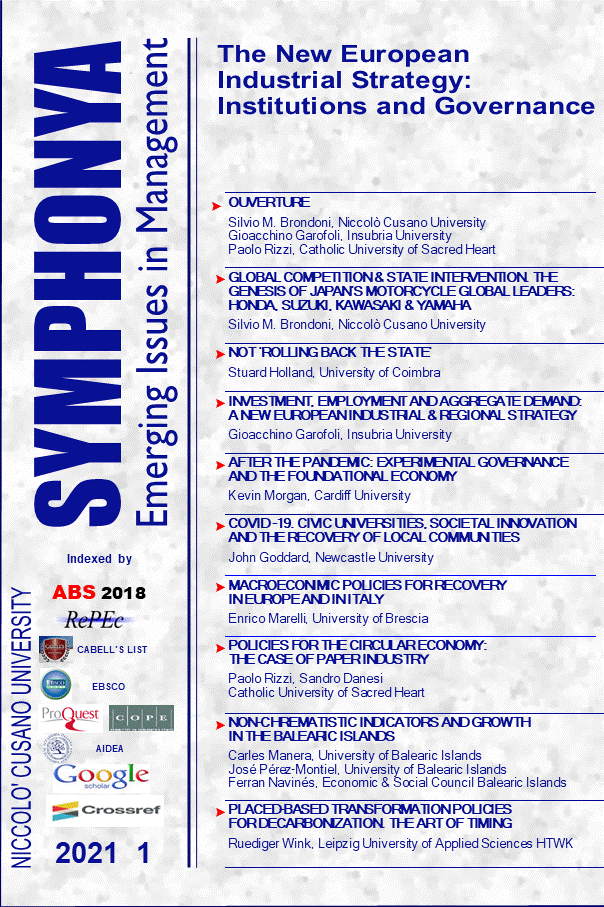Ouverture de ‘The New European Industrial Strategy: Institutions and Governance’
DOI:
https://doi.org/10.4468/2021.1.01ouvertureKeywords:
European Industrial Strategy, European Territorial Strategy, Institutions, Governance, State, Market, Territory, Global MarketsAbstract
Since the financial and economic global crisis of 2007-2008, western industrialized countries experienced a return to stronger state interventions in the business, which are considered as the most important answer to the new rules of global competition and oversize economy. After forty years of tendencies towards the second way of seeing the function of the State in the economy, both the financial crisis of 2007-2008 and the pandemic of 2020 have rediscovered the thaumaturgical value of the Keynesian approach, which is adopted in all Western countries, with impressive support plans for the real economy. The transition period towards a great structural change through the new European strategy based on developmental industrial policies needs a complex and multilevel European governance, based on the construction of a coherent inter-institutional governance of the public governmental filière. In particular, regions and cities can compete in global markets for attracting investments, tourists or residents through appropriate place marketing policies.
Downloads
Published
How to Cite
Issue
Section
License
Copyright (c) 2021 Symphonya. Emerging Issues in Management

This work is licensed under a Creative Commons Attribution 4.0 International License.
The authors retain all rights to the original work without any restrictions.
License for Published Contents

You are free to copy, distribute and transmit the work, and to adapt the work. You must attribute the work in the manner specified by the author or licensor (but not in any way that suggests that they endorse you or your use of the work).
License for Metadata

Symphonya published articles metadata are dedicated to the public domain by waiving all publisher's rights to the work worldwide under copyright law, including all related and neighboring rights, to the extent allowed by law.
You can copy, modify, distribute and perform the work, even for commercial purposes, all without asking permission.



